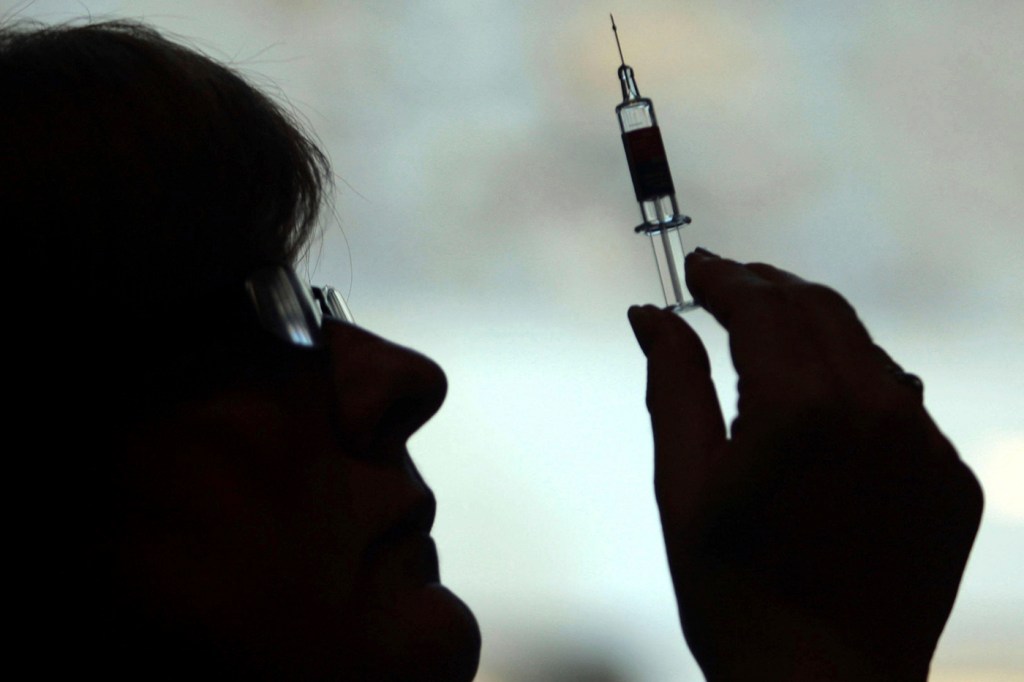With cancer rates falling, new research credits the HPV vaccine. Here’s why one expert says you should get vaccinated

Cancer rates have fallen by as much as 33% in the U.S. over the last three decades, according to a new report from the American Cancer Society.
The report credited the decline in cancer cases to improvements in cancer treatment, early detection strategies and a drop-off in smoking. It highlighted one measure in particular that has been hugely effective in combating cervical cancer, especially—namely, the human papillomavirus, or HPV, vaccine.
It’s been long-known that HPV, which is the most common sexually transmitted infection, according to the Centers for Disease Control and Prevention, can cause a range of cancers. Since becoming available in 2007, the HPV vaccine has been shown to provide almost 100% protection against several high-risk strains of HPV. Specifically, the report noted that cervical cancer is down about 65% in women in their 20s from 2012 to 2019—a testament to the efficacy of the HPV vaccine.
But vaccination rates for HPV remain low. Northeastern Global News sat down with Neil Maniar, associate chair, professor of practice, and director of the master of public health program at Northeastern, to learn more about the HPV vaccine and its role in preventing cancer. His comments have been condensed for brevity and clarity.

What is the link between HPV and cancer?
HPV is associated with a number of different cancers, and importantly it is associated with the vast majority of cervical cancer diagnoses. Somewhere between 91% and 99% of cervical cancer diagnoses are associated with HPV infection. It’s also associated with oropharyngeal [throat] cancer, and anal and penile cancers, among others. In women, the primary diagnosis is usually cervical cancer; in men it is throat cancer. So it’s important to recognize that both men and women are susceptible to HPV-related cancers.
The vaccine itself is very effective in terms of preventing HPV infection. In the case of those who may be infected with one strain, it is effective at preventing infection from another strain.
Among all of the tools we have to fight cancer, where does the HPV vaccine rank?
The CDC estimates that up to 80 million in the U.S. currently have HPV. If we think about HPV-related cancers, there are about 50,000 diagnoses per year in cancers affecting areas of the body where HPV is prevalent. Of those 50,000 diagnoses, about 80% to 90% of those cancers are a result of HPV.
Here we have the opportunity to prevent, or really significantly reduce the likelihood of, these forms of cancer. Simply put, it’s the most powerful vaccine we have against cancer. That’s really one of the biggest takeaways from this and why it’s so important that individuals get the HPV vaccine, which has been shown to be very effective, very safe, and our goal as a public should be to ensure that as many people get vaccinated as possible. The hope is that as vaccine rates go up, prevalence will go down.
How is the HPV vaccine currently administered? Is it a one-dose, one-time shot, or do you have to get annual boosters as with COVID-19 and the flu?
In many school districts, it’s included as part of the regular vaccine regimen. Typically, experts recommend that individuals get vaccinated around the age of 11 or 12, but you can get vaccinated all the way up to the age of 45.
It is a good idea to talk to your health-care provider if you have not already been vaccinated. And no, it’s not like a flu vaccine that you have to get every year—once you receive the HPV vaccine, you’re done.
The vaccines are most effective before people become sexually active; but again, even after a person becomes sexually active, there’s still a protective benefit.
How do you think the rise in vaccine hesitancy associated with politicization of these vaccines has impacted HPV vaccination rates?
I think the increase in vaccine hesitancy and the politicization of vaccines has certainly hurt, especially when we have vaccines where we know that they are safe and are effective and provide a long-term benefit—and HPV vaccines certainly fall in that category. There are other areas where we are seeing a significant drop-off in vaccinations that’s very dangerous, particularly when we think about the measles outbreak in Ohio right now. I think this is an unfortunate byproduct of the larger discourse taking place around vaccines; so it’s incumbent upon us to just ensure that we continue to educate communities about the importance of these vaccines and provide individuals with the information that they need to make the best decisions for their health.
Are there other vaccines in development targeting cancer?
There’s a lot of focus on that right now, both in terms of the traditional approaches and newer ones. That was part of the promise of mRNA: that it would provide opportunities to address a whole range of other conditions. Using vaccines as an approach to both cancer prevention and cancer intervention in something that is getting a lot of attention right now.
Tanner Stening is a Northeastern Global News reporter. Email him at t.stening@northeastern.edu. Follow him on Twitter @tstening90.






